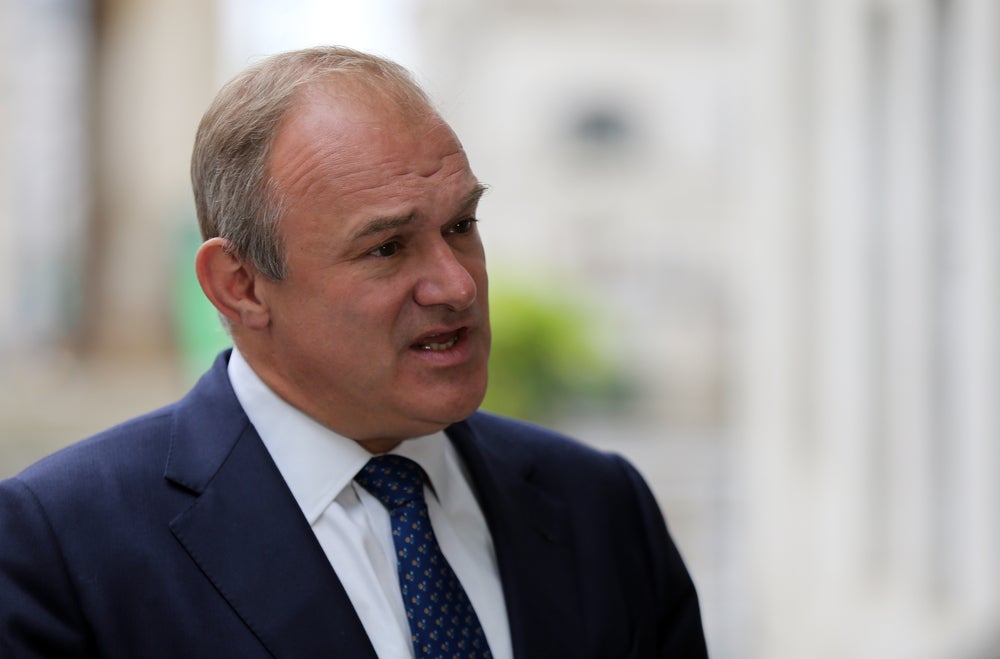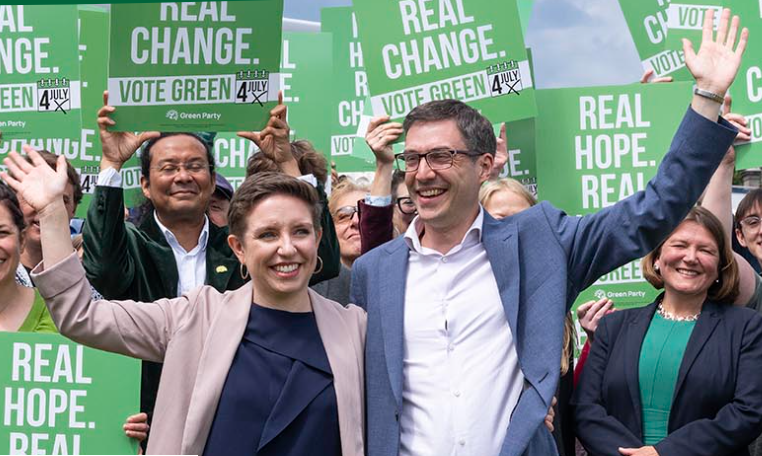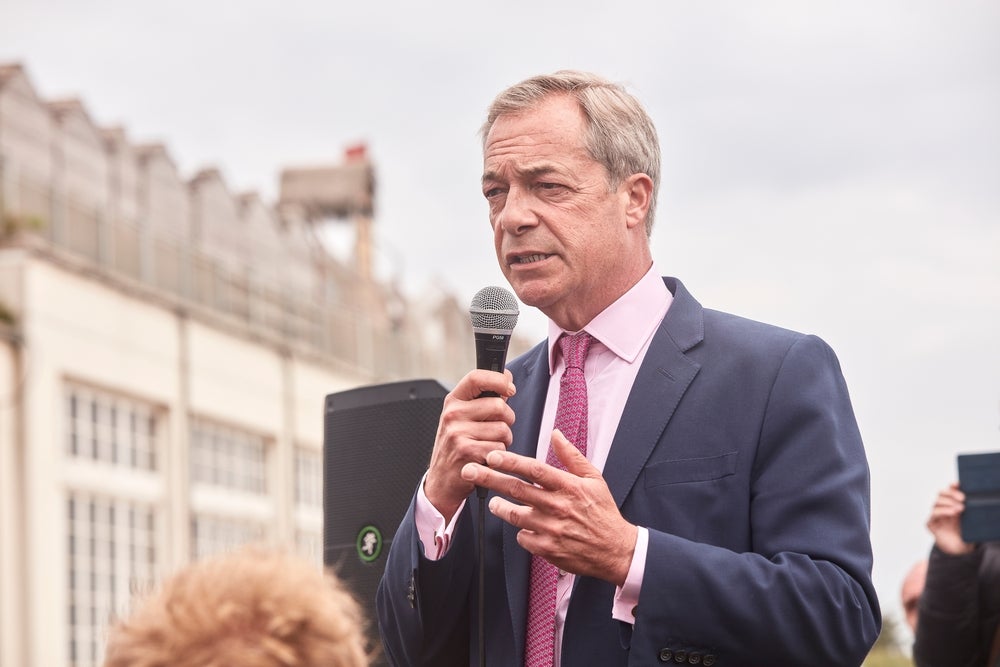In the run-up to the UK general election taking place on 4 July, GlobalData’s retail research director Patrick O'Brien shared that there was a slowdown in spending from retail consumers in the “UK Retail update Q2 2024- Election Special” on the company’s monthly survey of 2,000 people in the UK.
24.6% of consumers admitted their retail spending would be affected by UK elections and would be spending less.
“The good news is that there appears to be a bit of a bounce back in the first month after the election, perhaps enthusiasm enthused by the future,” said O’Brien.
He went on to say that despite consumer confidence being fairly high, retail volumes have been shrinking and the “likely” incoming Keir Starmer (leader of the Labour party) government may be able to “buck the trend” though he’s “unlikely to be pulling any rabbits out of hats to boost spending in a meaningful way.”
O’Brien does however add that if an immediate boost is seen it looks more likely to happen if Labour is elected as 35.9% of consumers expect to be confident enough to increase retail spending if Starmer’s party were to win compared to 27.7% if the Conservatives win.
Despite this, the survey found that Rishi Sunak, current prime Minister and leader of the Conservative party has a better record on improving sentiments than his predecessors, although he started from a historic low with the likes of David Cameron, Theresa May, Boris Johnson and Liz Truss.
Just Style has analysed the stance of the five major political parties in the UK election - Labour, Conservatives, Liberal Democrats, Green and Reform - to explore how their policies could affect the apparel industry if they were to gain a majority and come into power next week.
Conservatives: “the party of business”
The Conservatives aim to foster a business-friendly environment through strategic tax policies that “incentivise business to invest,” particularly for small and medium enterprises (SMEs).
The party hopes to maintain current corporation tax and capital gains tax rates and said it would continue the removal of EU regulations from UK law.
Referencing the business tax cut it implemented in 2023 as the “most transformational” measure, the Conservatives look forward to extending its “full expensing” policy to leasing.
The British Retail Consortium’s chief executive Helen Dickinson said the Conservatives manifesto “fails to take the bull by the horns,” leaving many ongoing challenges, from business rates that do little to bring about for the retail industry, to apprenticeships that lack a wider skill levy that allows retailers to invest in vital training.

On environmental issues, the Conservatives aim to increase offshore wind capacity and invest £1.1bn ($1.3bn) in a Green Industries Growth Accelerator to support British manufacturing capabilities and ensure “our energy transition is made in Britain.”
It remains committed to net zero by 2050, all whilst cutting costs for consumers by taking what it describes as a “pragmatic approach, guaranteeing no new green levies or charges while accelerating the rollout of renewables.”
The party would offer incentives to wind energy companies, especially those investing in disadvantaged areas in the UK or have “sustainable supply chains.”
They also plan to build the “first” two carbon capture and storage clusters in North Wales and North West of England to cut carbon and create tens of thousands of jobs in the region. As part of its commitment to protecting rural areas, the Conservatives pledge to address its “impact on illegal deforestation internationally.”
The Conservatives want to secure the UK’s position as a world leader in innovation by increasing public R&D spending to £22bn annually and investing over £1.5bn in large-scale compute clusters for Artificial Intelligence (AI).
Labour: “Stop the chaos, it’s time for change”
If elected Labour's first mission for the government is to create a “pro-business, pro-worker” environment, it plans to cap corporation tax at 25% and remove capital, and exports and replace the business rates system to “level the playing field” for SMEs.
Dickinson thinks it’s important that any system brings down the “disproportionate burden” on retail and adds that such reforms have the potential to “incentivise vital investment and help diverse shopping destinations to thrive.”
Labour employed a unique process of dealing with economic management called “securonomics” - an approach to strengthen economic foundations meaning a £1.8bn fund to upgrade ports and build supply chains across the UK in partnership with businesses, trade unions, local leaders, and devolved governments.
Labour promises to strengthen workers' rights, banning zero-hour contracts, introducing day-one employment protections and protections from unfair dismissal for all workers, regardless of the length of time at a company.
Dickinson “welcomes” Labour’s pledge to create a new specific offence for assaulting a retail worker to protect colleagues from both threat and violence.
Dickinson also expresses how the party “hit the nail on the head” when they said: “current rigid rules ignore vital skills and training needed to access apprenticeships,” as she strongly believes that a flexible Growth and Skills Levy could provide “just the answer retailers and their employees have been looking for.”
However, GlobalData retail analyst Oliver Maddison said whilst retail executives should be encouraged by Labour’s overall policy package the manifesto offers no “concrete timeline” and believes the effects of the party's policy agenda on retail will likely “take time to come to fruition.”

The party’s manifesto highlights the importance of “breaking down barriers to opportunity” by working with businesses, trade unions and local governments to turn Further Education Colleges into Technical Excellence Colleges in the hopes of producing “the highly trained workforce needed to deliver Labour’s Industrial Strategy.”
Dickinson supports Labour's proposed skills and training focus, citing the BRCS’s calls for wider skills within the Apprenticeship Levy, as she explains retailers are currently struggling to use all Apprenticeship funds and asks for a more flexible system to invest in pre-employment, functional, digital, and advanced courses to address the UK skills gap.
Its Industrial Strategy will support the development of AI in the creation of a National Data Library to bring together existing research and help deliver “data-driven public services.” A new Regulatory Innovation Office would update technology regulations and “ensure the safe development and use of AI models.”
Labour commits to reducing waste through circular economy initiatives whilst implementing Paris Agreement-aligned transition plans. It proposes making the UK a “clean energy superpower” by building Great British Energy, a publicly-owned company to boost green energy production.
Labour will capitalise on the build with £8.3bn to help create 650,000 jobs by 2030, lower energy bills and promote energy security in the UK. To deliver its clean power mission the party will invest in onshore and offshore wind, solar, hydrogen and marine energy, as well as carbon capture and storage.
Liberal Democrats: “will fight for a fair deal”
The Liberal Democrats' focus is fixing the UK’s “broken” relationship with Europe to rejoin the market and reduce trade barriers within the country.
It will support private enterprises by creating a stable business environment with smart regulation and investing in skills, infrastructure, research and innovation.
The party is one of the few that makes the case to increase the minimum corporation tax from 15% to 21%. The Liberal Democrats want to introduce a 4% tax on the share buyback schemes of FTSE-100 listed companies, to incentivise productive investment, job creation and economic growth.
According to Dickinson, the Lib Dem's commitment to reform the “broken business rates system” could “breathe new life into our town and city centres,” and explains how essential any replacement to rates brings down the “burden on retail to unlock vital investment.”

On sustainability, the Democrats set an ambitious target of net zero by 2045, aiming for 90% renewable electricity by 2030. The party also plans to implement a Carbon Border Adjustment Mechanism and require large businesses to publish nature-positive transition plans to ensure they are held accountable for their role in addressing climate issues.
The UK Fashion and Textile Association (UKFT) have been advocating for a similar intelligent EPR scheme for fashion and textiles, which incentivises the good and penalises the bad, with the fees generated used to develop the circular economy.
The political group outlines its commitment to supporting domestic industries in reducing their environmental impact and supporting science research and innovation amongst SMEs and startups. A chief secretary for sustainability in the Treasury will be appointed to “ensure that the economy is sustainable, resource-efficient and zero-carbon.”
However, UKFT maintains the elected government must focus on supporting UK fashion and textile manufacturers by offering grant funding for new capital expenditure and changing the rule around procurement so public bodies such as the military and the NHS have to spend some of their budgets “buying products made in the UK.”
In technology, the Liberal Democrats aim to negotiate the UK's participation in the US-EU Trade and Technology Council, supporting AI regulation and common standards. The framework will create certainty for AI users, developers and investors, while ensuring AI’s use of personal data is “unbiased, transparent and accurate” and protects people’s privacy.
The party’s manifesto aims to tackle the “late payments crisis” by requiring all government agencies, contractors and companies with more than 250 employees to sign up to the “prompt payment code,” making it enforceable.
Green party: “greener, fairer, country”
The environmental-focused party proposes a £40bn annual investment in the green economy transition and implementing a carbon tax on fossil fuel imports and extraction. The Greens also plan to cancel recent fossil fuel licenses, shut down nuclear power and advocate for a significant increase in wind energy production, aiming to meet 70% of the nation's electricity needs by 2030.
The party wants to transition to a “zero-carbon economy” focusing on skills, training and equipping workers along with a carbon tax which will gradually rise year on year. The Greens are also a pro-Europe party that hopes to rejoin the EU as soon as the “political conditions” are right.
If elected, the Green Party would introduce a Digital Bill of Rights, hoping to establish the UK as a leading voice on “the rules of law and democracy in digital spaces.” Alongside giving the public greater control over their data, this would regulate AI in line with the EU and UNESCO to produce a “coordinated response.”

Crucially for fashion, the Green Party would “ensure that AI does not erode the value of human creativity and that workers’ rights and interests are respected when AI leads to significant changes in working conditions.”
Like Labour, the Green Party promises to invest in creative sectors. One point sure to catch fashion students’ eyes is the push for a “speedy return” to free movement and reciprocal rights to work for EU and UK citizens, a reintroduction of Erasmus study abroad, and updated rules to allow migrants (including students) to be allowed to bring family members to the UK.
Reform UK: “Our contract with you”
Reform UK takes a different approach to business, proposing to reduce corporation tax to 20% and then reducing it to 15% after three years. Further down the line it plans to abolish business rates for high street SMEs and wants to cut entrepreneurs' tax to 5% and abolish IR35 rules for the self-employed.
With Labour, Lib Dems, the Greens and Reform all committing to scrapping or restricting the Business Rates regime The British Fashion Council sees it as “welcome news for retailers in particular.”
Reform was the only party to make any mention of the VAT Tourist Tax which it is choosing to abolish as it claims the government cost the economy over £10bn when they stopped the VAT refund scheme for tourist shopping, deterring up to 2m tourists.
The UKFT supports reinstating the UK VAT Refund scheme whilst the BFC is making it a “top priority” to encourage the Conservatives, Lib Dems and Labour to reconsider the decision to reintroduce Tax-Free Shopping.

The party want to extend student loan capital repayment periods to 45 years, sanction two-year undergraduate courses, carry out stronger minimum entry- standards for university courses and provide tax relief for businesses offering apprenticeships.
It again was the only party to completely scrap Net Zero targets and related subsidies such as renewable energy levies. Instead, it focuses on fast-tracking clean nuclear energy, increasing UK lithium mining and exploring “clean coal mining.”
Reform aims to replace the 2010 Equalities Act and added it will “scrap Diversity, Equality and Inclusion (DE&I) rules that have lowered standards and reduced economic productivity.”
The party's manifesto doesn't specifically address technology policies for the fashion sector but said it would review the Online Safety Bill and inquire into the harm of social media on children.









